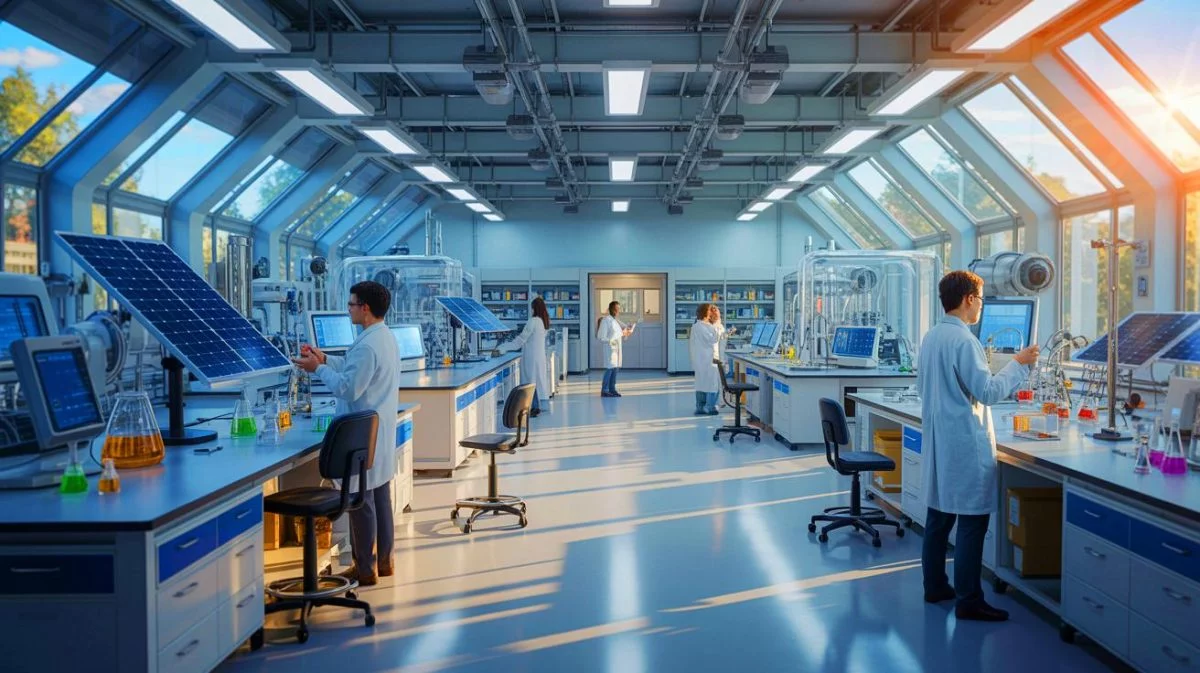| IN A NUTSHELL |
|
The landscape of research and development is ever-evolving, with new discoveries and innovations driving progress across various sectors. In recent years, the emphasis on sustainable solutions and cutting-edge technologies has intensified, impacting industries from healthcare to energy. As global challenges mount, the importance of robust research initiatives has never been more critical. This article delves into the multifaceted world of research, highlighting key areas of focus and their implications for the future.
The Role of Research in Sustainable Development
Research plays a pivotal role in addressing the pressing needs of sustainable development. As the world grapples with climate change, resource depletion, and environmental degradation, the demand for innovative solutions is at an all-time high. Scientists and researchers are at the forefront of this movement, seeking ways to reduce carbon footprints and improve energy efficiency.
One notable area of focus is renewable energy. Solar, wind, and hydroelectric power are becoming increasingly viable alternatives to fossil fuels. Research in these fields aims to enhance efficiency and reduce costs, making clean energy accessible to a broader population. Furthermore, advancements in battery storage technology are crucial for storing renewable energy, ensuring a steady supply even when natural conditions are unfavorable.
Beyond energy, sustainable agriculture is another critical area. Researchers are exploring methods to increase crop yields while minimizing environmental impact. Techniques such as precision farming and the development of drought-resistant crops are gaining traction, offering hope for food security in a changing climate.
Advancements in Healthcare Research
The healthcare industry is witnessing a revolution driven by research and innovation. From genomics to personalized medicine, the potential to transform patient care is immense. Recent breakthroughs in genetic research have paved the way for tailored treatments, allowing for more effective and targeted interventions.
One of the most promising areas is the use of CRISPR technology for gene editing. This tool allows scientists to modify genes with precision, offering the possibility of curing genetic disorders and improving resistance to diseases. However, ethical considerations and regulatory frameworks remain crucial as this technology advances.
Moreover, the COVID-19 pandemic underscored the importance of rapid research and development in vaccine creation. The swift development and deployment of vaccines were largely due to decades of prior research, demonstrating the critical role of sustained investment in healthcare research.
Impact of Technology on Research Methodologies
Technological advancements have significantly transformed research methodologies across disciplines. The integration of artificial intelligence (AI) and machine learning is revolutionizing data analysis and interpretation. These technologies enable researchers to process vast amounts of data rapidly, uncovering patterns and insights that were previously unattainable.
In the field of materials science, AI assists in the discovery of new materials with desirable properties. By simulating countless combinations, researchers can identify potential candidates for various applications, from aerospace to electronics, more efficiently than traditional methods.
Furthermore, technology enhances collaboration among researchers worldwide. Digital platforms facilitate the sharing of data, findings, and ideas, fostering a more collaborative and interdisciplinary approach to problem-solving. This global network accelerates the pace of discovery and innovation, pushing the boundaries of what is possible.
Challenges and Future Directions in Research
Despite the promising advancements, research faces several challenges that must be addressed to sustain progress. Funding constraints, ethical dilemmas, and the ever-present threat of misinformation are significant obstacles. Ensuring that research remains credible and unbiased is vital for maintaining public trust and support.
Another challenge is the accessibility of research outcomes. Bridging the gap between academic research and practical applications requires effective communication and collaboration with industry stakeholders. This transition is crucial for translating theoretical knowledge into tangible solutions that benefit society.
Looking ahead, interdisciplinary research will likely become increasingly important. Complex global challenges require a holistic approach that combines expertise from various fields. By fostering collaboration and breaking down silos, researchers can develop comprehensive solutions that address the multifaceted nature of these issues.
As research continues to shape our world, the need for innovation and collaboration remains paramount. The challenges are numerous, but the potential for positive impact is vast. How can the global research community overcome these hurdles to ensure a sustainable and prosperous future for all?
Did you like it? 4.5/5 (20)








Amazing breakthrough! How soon can we expect these CRISPR treatments to be available to the public? 🤔
Isn’t it risky to rely too much on AI for genetic research? What if it makes mistakes? 😨
Finally, some hope for rare diseases! Thank you to all the researchers involved. 🙌
Are there any known side effects of using CRISPR technology on humans?
Not sure how I feel about AI playing God with our genes. Anyone else worried? 🤷♀️
Why isn’t there more focus on the potential ethical issues of this technology?
This sounds like science fiction coming to life! I can’t wait to see the results. 🚀